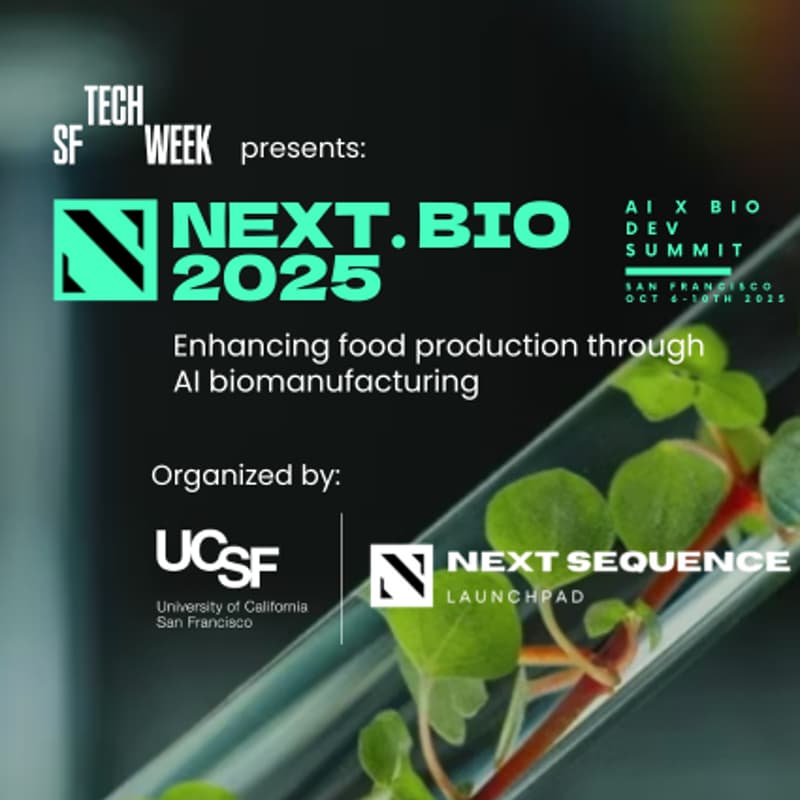

NEXT.BIO 2025 - Enhancing food production through AI driven plant genomics
In October 2025, A16Z #SFTechWeek will once again take over San Francisco. We are organizing NEXT.BIO, a world-class week long tech conference featuring the best startups, industry leaders and investors in AI x BIO across a series of TechTalks, and a unique Hackathon and DEMO Day 🚀
We are one week away from the launch of our TechTalks Series during #SFTechWeek and we couldn't be more thrilled.
You can find here speakers that are going to be joining us for this track on : Brain and BCI as the next frontier interface:
. "Agentic research and protein design for agriculture", ZaviaBio
. "Beyond the Genome: How First Peoples' Wisdom and Neural Networks Can Save Our Earth", Portunus
. "Teaching chemistry to computers in the era of AI", Migma
. "Machine Learning for deep characterization of plant based foods", Entropy Labs
We still have some slot left for speakers so feel free to reach out to us here with your talk title: [email protected]
For those you interested in joining us for the Global AI x BIO Hackathon Challenge by Next Sequence:
. Register under the Hackathon participants ticket here
. More on the Global AI x BIO Hackathon Challenge here
. Find past resources on Food and Agriculture themes and available datasets here
Finally, we are thrilled to unveil our amazing panel of speakers and judges coming on Oct 10th for our DEMO Day here.
For the startups interested in:
. Getting a chance to be selected to join the startups battlefield on DEMO Day, register under the Startup Battlefield participants ticket here
. Exhibiting your startup at one of the booth at the event, register under the Startup Booth here
See you soon !